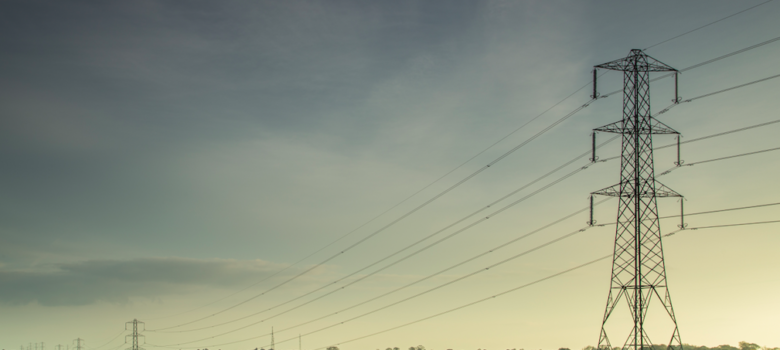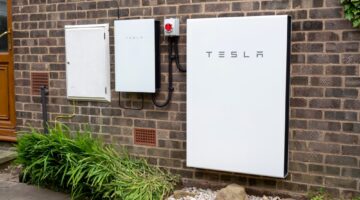
We read a very interesting report this morning from The British Infrastructure Group (BIG) – the report titled Electric Shock: Will The Christmas Lights Go Out Next Winter? was pulled together by the Rt. Hon Grant Shapps MP and has highlighted the lack of headroom we have in our grid. If we don’t have sufficient capacity in our grid to cope with peak energy demand, the result will be blackouts.
We’ve looked at this before – in 2012 and 2013- and the sentiment hasn’t changed. If you would like to read our original blogs please click here and here.
The report is an interesting one to be honest, putting the blame on policy and the shift to greener/renewable technologies. The report highlights the closure of coal power plants being a major factor to blame in the lack of capacity that we are now experiencing. This may well be true, but we thought we should highlight the bigger problem that the report seems to neglect.
What has caused the UK’s energy shortfall?
The blame for the lack of capacity in our grid lies firmly at the feet of our government. Not this government in particular but successive governments who have completely ignored energy policy for decades now.
Power plants have a shelf life – this has been the case since the very first power plant was built in the late 1800s. We started building nuclear power plants in this country in the 1950s, with the first becoming active in 1959. These power plants were expected to last approximately 50 years.
The last nuclear power plant was built in 1988 (coming online in 1995). Almost all of these power plants will be decommissioned in the next decade, with the last plant (Sizewell) due to close in 2035.
The Government have had plenty of time to come up with a realistic succession plan, but they have simply failed to take any action. What did they think would happen? That we would all start using less energy? Obviously energy efficiency has helped – just look at LED lights, now offering the same performance as tolder incandescent lights but using a tenth of the energy. Likewise there has been a huge push on insulation and this has seen demand for heating decrease across the UK – these advancements, however, will not solve the issue.
Of course the move to renewables has had a impact – but take a look at the electrical grid this morning. We have demand of 47GW, of which 18% is coming from nuclear, 20% is coming from coal, 54% is coming from gas and just 8% is coming from renewables (wind / hydro / biomass and solar).
The bad news is that nuclear, gas and coal are all running pretty much full tilt at the minute.
Why oh why have the Government not bothered planning for this?! We have just been given the green light on a new nuclear power plant which will certainly help, but the chance of this being constructed and connected to the gird before the other nuclear plants begin to go offline? Not going to happen!
Obviously renewables can be added to the grid and this is something we are huge advocates of, however the fact that most renewables are intermittent and a lack of energy storage at the moment (batteries in the most part), means there is always going to be a need for base load power in the grid.
It is exceptionally easy to blame the push towards renewables as the main problem, but why is Government so short sighted? We have had 50 years to create a succession plan for nuclear plants but it has just been left to the next Government. The bottom line is that it isn’t currently competitive for the UK to pull coal out of the ground or drill for oil from the North Sea, therefore we are always going to be reliant on other countries for our fuel sources, but whatever way we go we need to be building power plants. Obviously we would prefer a push towards gas rather than coal, but nuclear certainly does have a part to play. All the while we can build up our renewables sector and therefore hopefully reduce reliance on other countries to provide our fuel.
We have discussed this before but the real turning point will be when we have the first blackout. It will suddenly bring the issue to the forefront of the average Joe rather than those that take an interest in energy policy. Tell someone they can’t turn their heating on, or that they can’t boil a kettle, and people have reason to be upset.
What’s next for UK energy policy?
Energy efficiency will of course have a huge part to play, since this should reduce energy demand, meaning less capacity is required. Likewise, demand side management is going to have a part to play, but even this is going to cost the tax payer money since we will need to foot the bill to encourage big energy users to use less energy at peak times.
As the BIG report alludes to, the cost of emergency power is very expensive and this is costing the tax payer. Well, surely it is about time the Government did something and put into place a genuine energy policy where we begin to build up baseload capacity.
My closing thoughts are this – yes, it is easy to drive past a wind turbine and get angry that it isn’t spinning, but look at the bigger picture, the Government has dropped the ball in such a huge way over the last 20 years. They talk and talk but never actually do anything – surely new base power is marginally more important than investing in HS2. The Government needs to act, and it needs to act now!
Think we missed something? Do you have a different opinion?
Comment below to get your voice heard…












Why isn’t this on the mainstream news more? Why aren’t the media picking up on the story??
I am suprised you are not highlighting the benefits of renewables more. Offshore wind (which the UK is a leader in) is becoming more and more affordable as the size of the wind turbines increases. Dong and some of the other offshore turbine companies are vowing to cut costs to £70 per MWh by 2025. If so, the strike prices may start to match the wholesale price of electricity in the UK market. This would mean that the these companies would start paying money back to Government under Britain’s ‘contract for difference’ system.
The industry’s research arm Inwind is already drawing up plans for the next generation of 10-20 MW turbines. The Sandia National Laboratories in the US are exploring 50 MW monsters with ‘segmented ultralight morphing rotors’.
So maybe the costs are going to fall even further. While I agree the Government seem completely inept with regards to energy policy, we certainly shouldn’t stop supporting renewables just when we are on the cusp of producing something pretty special. I also think the great benefit of the off-shore turbines is that far few people complain about them because they aren’t in ‘their backyard’.
I for one think we should have a mix of offshore wind (admittedly unpredictable), gas plants for baseload because they are so reactive and tidal because that is perhaps the most predictable type of renewable. If we were to get to that place then we are stop this stupidly expensive Hinkley C experiment and focus on the technologies that we can then export around the world.
Bloody well hope not! I find electricity very useful and if the Government stuff it up then I will be most aggrieved 🙂
Haha, thanks for the comment Chris, I think we would all be a little bit upset if the Government allowed blackouts to occur!